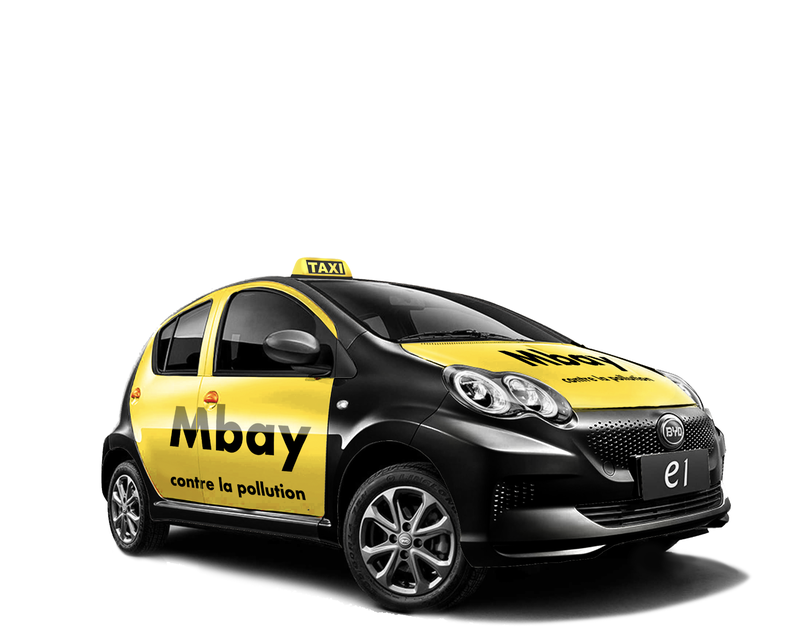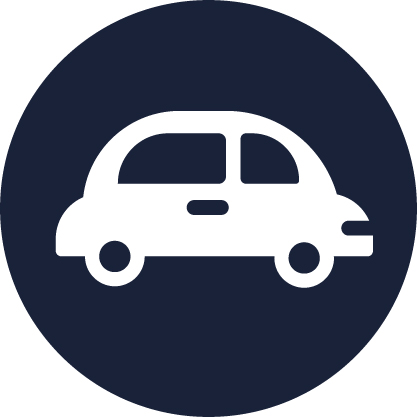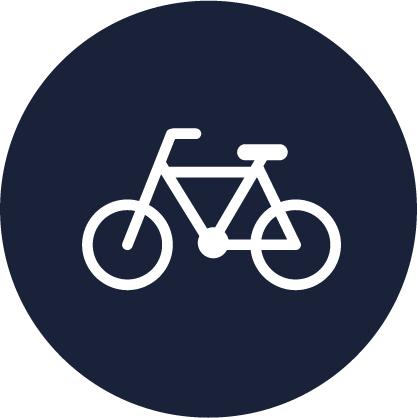Mbay Mobility Pilot
In Wolof, a national language of Senegal, Mbay means ‘to develop’. By riding on the wave of the electric transport revolution, we believe that we can connect the dots to develop polluting private transport ride hailing services into a clean and affordable solution.


Overview of the project

Mbay has secured funds to launch a pilot project with 10 electric vehicles, and several medium and fast chargers in January 2022. Ten vehicles will be tested on car hardware, on their charging capabilities, on acceptance by drivers, owners, and clients, and on tailored tracking and payment software.
- Our taxis are electric vehicles that can be charged using standard household plugs. We are working towards using exclusively solar power to recharge our batteries.
- Our fleet is equipped with hardware and software that allows us to collect data. We use this data to make our fleet management efficient and use a pay-go system.
- Proven quality, comfort and the required range. Minimum maintenance needed.
In addition, several charging set-ups will be tested, including slower household charging, faster petrol station, and garage charging. Two models will be tested during the pilot period:
- In the first model, the electric vehicles will be sold with a financing option to current taxi owners, who will continue to be responsible for the taxi operation, using the traditional street-hailing approach.
- In the second model, the electric vehicle will be sold to the patron, and Mbay will rent back the vehicle to operate it with optimised app-hailing software.
Decrease pollution and increase mobility by introducing clean, robust, and smart taxis in West Africa.
Launching
Project still in progress
To prepare for the pilot and raise pilot funding, we have carried out several pieces of research. Our public benefit study, carried out by the Oeconomia economic consultancy, has shown that adopting electric taxis in Dakar will lead to public benefits worth approximately $50m per year:
- $10m from reduced carbon emissions
- $25m from reduced health costs associated to air pollution
- $14m from reduced congestion
Our financial analyses have shown that by switching from fuel to electricity, the taxis will save about $14 dollar per shift. This adds up to significant savings over time that more than justify the initial investment; total net revenue per electric vehicle taxi over a lifetime is between $80,000-$200,000, higher than for current fossil-fuel taxis, thanks to fuel and maintenance savings.
We have interviewed all the main stakeholders in the taxi sector, including the Government of Senegal, Dakar Transport Authority, clients, drivers, owners, and citizens, and all are keen to adopt e-mobility because they see clear benefits.
Public authorities are clear on the public benefits that will lead to reduced costs for them, and improved quality of life for citizens. Owners can increase their earnings and image as modernisers. Drivers and clients will benefit from air conditioning and greater comfort. Dakar citizens will be able to breathe cleaner air and experience a multitude of health and related economic benefits.
The project was funded by local investor - still non disclosed as we are finalising legal documents for pilot funding.
organisation
Mbay Mobility is aiming to trigger a clean transport revolution in West Africa, by introducing electric vehicles, and smart-software fleet management, starting in Dakar, Senegal.
Mbay will provide a clean, robust, and smart mobility network to replace the old polluting taxis. The introduction of Mbay will decrease CO2, reduce the presence of toxic micro particles, and make transport flow more efficiently in order to reduce congestion.




